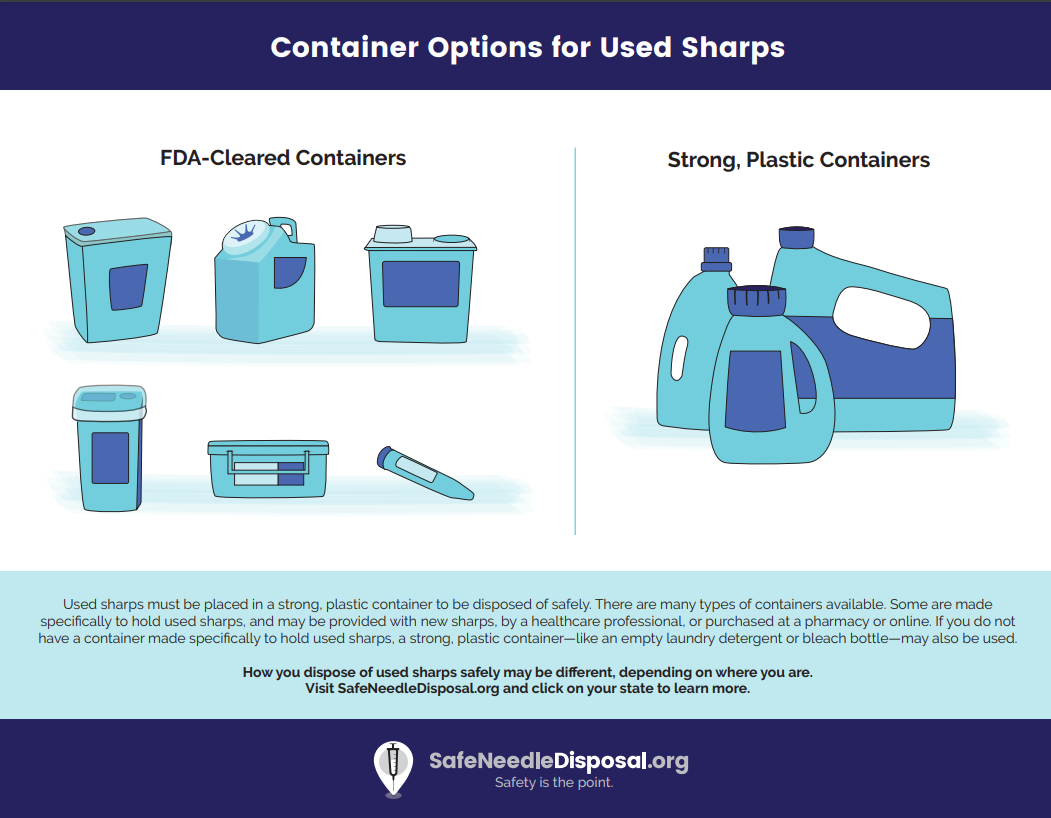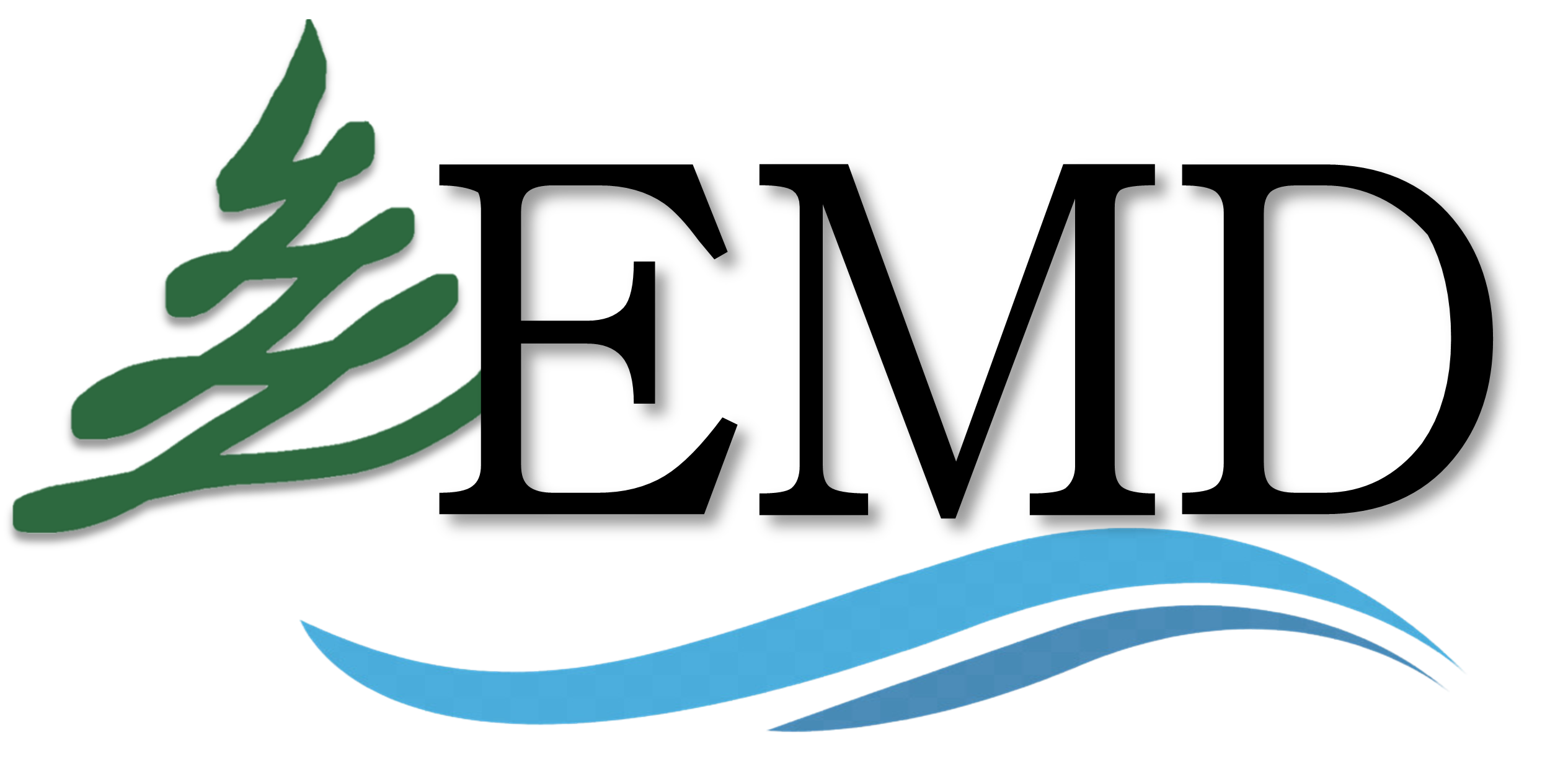What Not to Flush
Hypodermic Needles and Trash Disposal to Wastewater Treatment Facilities
At our wastewater treatment plants we collect and process everything that goes down the drain. This includes the normal stuff, and the not so normal. The first part of our treatment process is to collect all of the “things” that cannot be broke down in our mechanical physical process; wet wipes, diapers, hair, prescription drugs and syringes to name a few. Most of the solids that cannot be processed are generally safe to remove from the system; however, syringes and other sharps are extremely dangerous to our plant operators and technicians.
Recently, plant operators have seen an increase in the amount of used medical needles coming into the wastewater treatment plants and need to stress the importance of customers disposing of their needles in a safe manner.
According to the CDC, Sharps [needle sticks] injuries are primarily associated with occupational transmission of hepatitis B virus (HBV), hepatitis C virus (HCV), and human immunodeficiency virus (HIV), but they have been implicated in the transmission of more than 20 other pathogens.
Never place loose needles and other sharps (those that are not placed in a sharps disposal container) in the household or public trash cans or recycling bins, and never flush them down the toilet. Doing so puts trash and sewage workers, janitors, housekeepers, household members, and children at risk of being harmed.
Wastewater Treatment Process:
Wastewater treatment facilities intercept sewage (influent) that is discharged to the collections system from residential and commercial properties. The processes utilized to remove and treat the wastewater streams are managed by mechanical/physical, biological, and final disinfection prior to the (effluent) being discharged to receiving water streams.
During the mechanical/physical process we remove everything that cannot be broken down like; Syringes – (see below for proper disposal), cotton swabs, make-up pads, feminine hygiene products, paper towels, diapers, toys, dental floss, plastic wrappers, condoms, hair, prescription drugs including OTC medications and cleaning wipes/wet wipes. Even if the package says ‘flushable or disposable’ they should never be flushed. They cause issues within the mechanical treatment process, are not biodegradable and belong in the trash. Flush only toilet paper. Put the trash in the trash can for proper disposal. When physical solids are removed from the mechanical process, this will reduce the potential for mechanical equipment breakdowns. Most importantly this will reduce the safety hazards to plant operators and maintenance technicians when cleaning or working on mechanical removal equipment.
Proper Disposal of Needles and Medications:
Container Options:
Used sharps must be placed in a strong, plastic container to be disposed of safely. There are many types of containers available. Some are made specifically to hold used sharps, and may be provided with new sharps, by a healthcare professional, or purchased at a pharmacy or online. If you do not have a container made specifically to hold used sharps, a strong, plastic container—like an empty laundry detergent or bleach bottle—may also be used.

Disposal:
Once your container is 3/4 full you can, put the lid on, seal it with duct tape and label DO NOT RECYCLE. Put the plastic container in the household trash, do not recycle it.
For more information on sharps disposal visit, https://safeneedledisposal.org/states/colorado/.
Disposal of Medications:
You can take your medication to a Take Back Location for proper disposal.
Jefferson County Sheriff's Office - Headquarters Lobby
200 Jefferson County Parkway
Golden, CO 80401
Jefferson
M-F, 8-5. Closed holidays.
Jefferson County Sheriff's Office - Jail Lobby
200 Jefferson County Parkway
Golden, CO 80401
Jefferson
M-SU, 8-8. Open Holidays.
Jefferson County Sheriff's Office - Mountain Precinct
4990 County Highway 73
Evergreen, CO 80439
Jefferson
M-F, 8-5. Closed holidays.
If you are unable to make it to one of the Take Back locations, please do the follow:
- Remove medications from their original containers and place in a zip-top bag or a sealable container with a secure lid (make sure you remove pill labels or cross out any identifying information and recycle or dispose the bottles separately).
- Do not crush or attempt to dissolve pills and capsules.
- Mix with something that can’t be eaten, like kitty litter or coffee grounds.
- Wrap the bag or container in newspaper or a plain brown bag to conceal its contents.
- Place it in your trash on the day it gets picked up or taken to a landfill.
Never flush medications as they can pollute the water supply.
For information on safe medication disposal please visit, https://cdphe.colorado.gov/colorado-medication-take-back-program.
EMD, WJCMD & KSWD Districts thank you in advance for taking the time to keep our operators and technicians safe.
